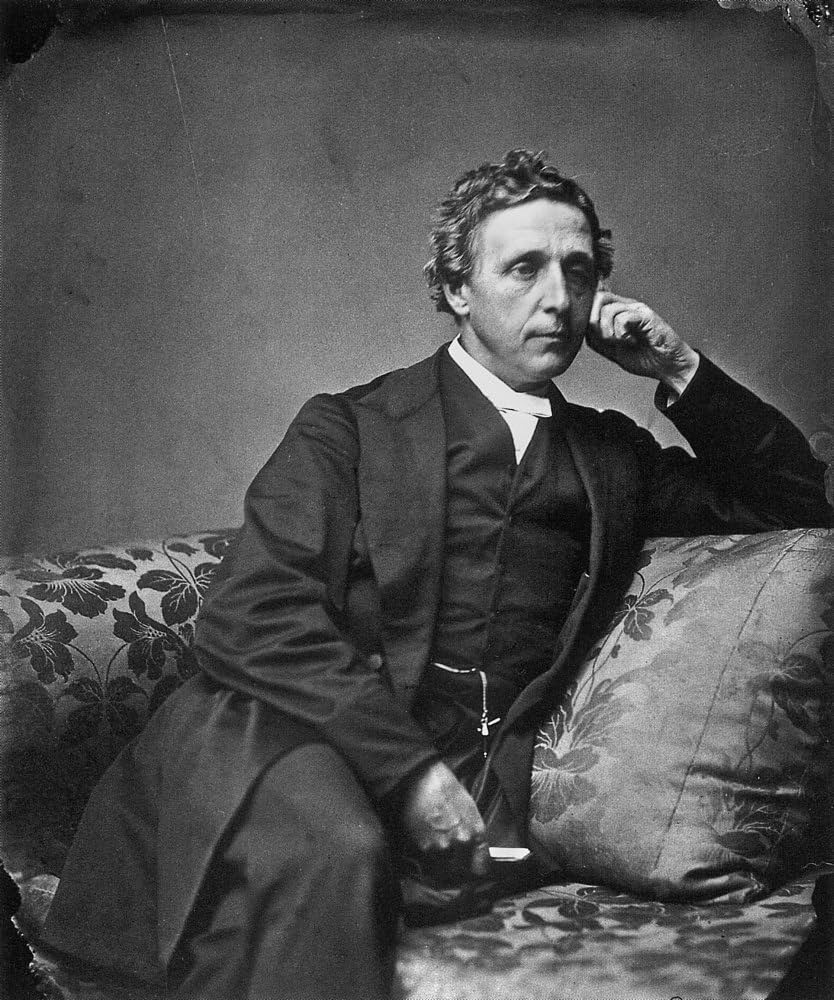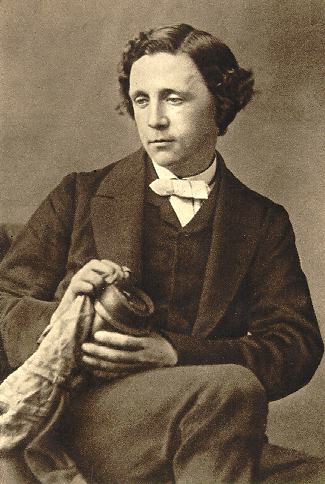Navigation: <Home> <Contact>
Lewis Carroll (1832-1898)
A Curious Beginning: The Making of a Storyteller
Born Charles Lutwidge Dodgson on January 27, 1832, in the quiet village of Daresbury, Cheshire, Lewis Carroll grew up in a large, intellectually stimulating family. The third of eleven children, young Charles entertained his siblings with homemade magazines, word games, and fantastical stories—early signs of the creativity that would later define Alice’s Adventures in Wonderland . His father, a clergyman, instilled discipline and piety, but Carroll’s imagination thrived in the isolation of rural England, where books like The Pilgrim’s Progress became his escape .
A shy child with a stammer, Carroll found solace in mathematics and logic. His academic prowess shone at Rugby School, though he later recalled his time there as unhappy due to bullying and rigid routines . Yet, his brilliance earned him a scholarship to Christ Church, Oxford, where he would spend most of his adult life as a lecturer in mathematics—a career he balanced uneasily with his burgeoning creative pursuits .Read More
The Birth of Alice: A Story for a Golden Afternoon
Carroll’s most enduring legacy began on a sunlit picnic in July 1862, when he rowed up the Thames with the Liddell sisters—Alice, Lorina, and Edith. To entertain them, he spun a tale about a girl named Alice who tumbled into a surreal world. The real Alice, enchanted, begged him to write it down. The result was Alice’s Adventures Under Ground, a handwritten precursor to the published classic .
Encouraged by friends like author George MacDonald, Carroll expanded the story. With illustrations by John Tenniel, Alice’s Adventures in Wonderland (1865) defied Victorian moralizing children’s literature, offering instead a riot of wordplay, riddles, and absurdity. Its sequel, Through the Looking-Glass (1871), cemented Carroll’s reputation as a master of literary nonsense, featuring iconic characters like the Cheshire Cat and the Jabberwocky .
The Dual Life of Charles Dodgson
Under his real name, Carroll was a reserved academic, publishing mathematical treatises like Euclid and His Modern Rivals (1879). As “Lewis Carroll,” however, he embraced whimsy, penning the nonsense poem The Hunting of the Snark (1876) and dabbling in photography. His portraits of figures like Alfred Tennyson and Dante Gabriel Rossetti were celebrated, though his nude studies of children—abandoned abruptly in 1880—remain controversial .
Carroll’s personal life has long intrigued scholars. His friendships with young girls, including Alice Liddell, sparked speculation, though no evidence supports darker theories. He distanced himself from Alice as she grew older, and his later works, like Sylvie and Bruno (1889), blended fairy tales with ethical musings but never recaptured Alice’s magic .
Legacy: A Timeless Wonderland
Carroll died of pneumonia on January 14, 1898, but his stories endure as cultural touchstones. Alice has inspired countless adaptations, from films to ballets, and its playful subversion of logic continues to delight readers. As Carroll himself once wrote: “Imagination is the only weapon in the war against reality.” .
Difficult Words with their meanings:
- Whimsy – Playfully quaint or fanciful behavior or humor.
- Piety – Deep religious devotion or reverence.
- Precocious – (Of a child) showing advanced development at an early age.
- Stammer – A speech disorder involving involuntary pauses or repetitions.
- Uneasily – In a way that suggests discomfort or tension.
- Burgeoning – Growing or developing rapidly.
- Moralizing – Giving moral lessons, often in a self-righteous way.
- Riot (of wordplay) – A vivid, uncontrolled display.
- Absurdity – The quality of being ridiculous or wildly unreasonable.
- Treatises – Written works dealing formally with a subject.
- Dabbling – Taking part in an activity casually or superficially.
- Controversial – Causing disagreement or debate.
- Speculation – Forming theories without firm evidence.
- Musings – Deep thoughts or reflections.
- Subversion – Undermining or overturning established norms.


No Responses